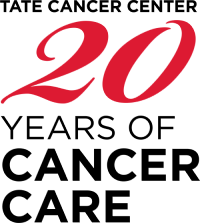Testicular Cancer
Testicular cancer is a disease of the testes, which is the male reproductive organ located within the scrotum. The testes produce sperm and the male hormone testosterone. Testicular Cancer typically affects men between the ages of 15 to 35. More than 95 percent of men who have the cancer are treated successfully.
Testicular Cancer Risks
A family history of testicular cancer and Caucasian men are found to be at the highest risk of getting the disease. Those born with an undescended testicle at birth (Cryptorchidism) or an extra X chromosome (Kinefelter's Syndrome) are also at risk.
Symptoms
Most cases of testicular cancer are found by doing a self-examination. Symptoms can include:
- Pain or discomfort in the testicle or scrotum
- A lump or enlargement of the testicle
- Back pain
- Dull ache in the groin
- A feeling of heaviness in the scrotum
Screening
While no standardized screenings exists for testicular cancers like they do for other types of cancer, urologists recommend regular monthly self testicular examinations. Exams are best done after a warm shower or bath when the scrotum is relaxed. Check for any swelling. Exam each testicle and gently feel for any irregularities. If something is suspicious, contact a urologist.
Diagnosis
When diagnosing testicular cancer, a scrotal ultrasound is used to identify or confirm a mass. A CT Scan of the chest, abdomen and pelvis along with blood tests (including tumor markers alpha-fetoprotein and human chorionic gonadotropin) are used to evaluate the extent of or for spread of disease.
Find a physician for urology and testicular cancer treatment.

